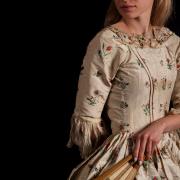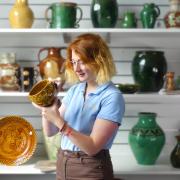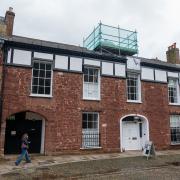It’s hard to imagine a world without libraries. Whether we need to pop in to borrow a book, use a computer, watch a film, take part in an art workshop, book a meeting room or take a child to a lively Bounce & Rhyme session, we know libraries are always there for us and that most of what they offer won’t cost us a penny.
This year marks the centenary of the creation of the Devon County Library Service. Libraries had been in existence in Devon for centuries before this, but many were subscription-only or linked to institutions such as the church. Some libraries were also run by individual local authorities and funded by people paying their ‘rates’ – but they were few and far between.
‘In 1924 there were seven rate-supported public library services, but they only covered half the Devon population,’ says Ian Maxted, book historian and author of The Story of the Book in Exeter and Devon. ‘The new Devon Library Service brought together and then expanded public libraries for the whole county. For the first time everyone had free access to books.’

The first free library in Exeter was opened in 1870 in three rooms on the first floor of the Royal Albert Memorial Museum in Queen Street. Opening hours were 10am and 10pm. Just 1,000 books were available – the current Libraries Unlimited stock across Devon and Torbay, including digital downloads, totals well over a million. Through the following decades, wealthy benefactors donated collections of books which led to the library’s expansion within the museum as rooms became vacant.
By 1910 there were 42,000 volumes on offer, although only 2,000 were fiction. Exeter’s first professional librarian, Harry Tapley-Soper, felt that the provision of novels was best left to subscription libraries such as the library run by Boots the chemist.

Following Exeter library’s founding in 1870, free public libraries were soon popping up all over Devon, largely driven by funding from community-minded Victorian philanthropists.
In Barnstaple, the North Devon Athenaeum Library was established by William Frederick Rock in 1888, a Barnstaple local who had thrived in London as a publisher of engravings.
An £8,900 donation by Scottish American industrialist and philanthropist Andrew Carnegie led to the construction of a new library building in Plymouth in 1913.
Bideford’s free library opened in 1905, also funded by Carnegie, and in 1907 the new public library in Torquay stocked 40,000 books.
Cornish newspaper owner and philanthropist John Passmore Edwards contributed towards the development of Newton Abbot Library. The foundation stone was laid in 1902 and the current library is still housed in the distinctive building.
In 1921, Andrew McIlwraith donated Cliff House to the people of Salcombe, allocating the Reading Room for the town’s library, partly as a memorial for the men of the town who had died in the First World War.
The launch of the Devon County Library Service in 1924 brought together all the libraries dotted around our county, although it wasn’t until reorganisation of local government in 1975 that a single unified service began to share book stock and stabilise the finances needed to run the buildings.

A state-of-the-art upgrade of Exeter Library took place in 2014 and there are now over 450,000 customers welcomed through the door each year – with a total of 1.96m in Devon and 325,000 in Torbay.
The 54 libraries across Devon and Torbay are now managed by Libraries Unlimited, the charity that runs them on behalf of Devon County Council and Torbay Council. When Libraries Unlimited was awarded the contract to run Devon’s libraries in 2016, this created a new era for library management and was the single biggest change in the system since 1924.
As a charity, Libraries Unlimited can fundraise from donors and apply for grants from trusts and other organisations in addition to funding awarded through contracts with local authorities. This model has been so successful, it’s been promoted around the country through the Department of Culture, Media and Sport.

‘Libraries are so much more than many people imagine,’ he says. ‘Perhaps most importantly they are the safest space and the most curious place in town. They are not just the guardian of knowledge but a place of activity, security and possibility.’
Chief executive, Alex Kittow says Libraries Unlimited has been an outstanding success.
‘Not only do we run the public libraries which enable people to borrow books, we also deliver a year-round programme of cultural events and activities, support for local businesses and entrepreneurs, wellbeing initiatives and educational provision.

‘Over the past 100 years, public libraries have been not just a free source of knowledge, but welcoming community hubs of activity and information. The Devon Library Service could I am sure never have envisaged what thriving hubs they have become. Maybe they would have been shocked to see people using our free computers and wifi, learning crafts, watching films, enjoying an evening gig from local musicians, downloading eBooks on their tablets, and doing any of the dozens of other activities we offer on top of simply lending books.
‘This centenary is a fantastic opportunity to reflect on how far we’ve come, and to look towards the future. Some things haven’t and will never change. We are dedicated to continuing to invest in our service to fulfil our core mission - enriching lives and building communities – and very much hope we will still be doing this in 2124.’
With grateful thanks for research information from Ian Maxted.




























